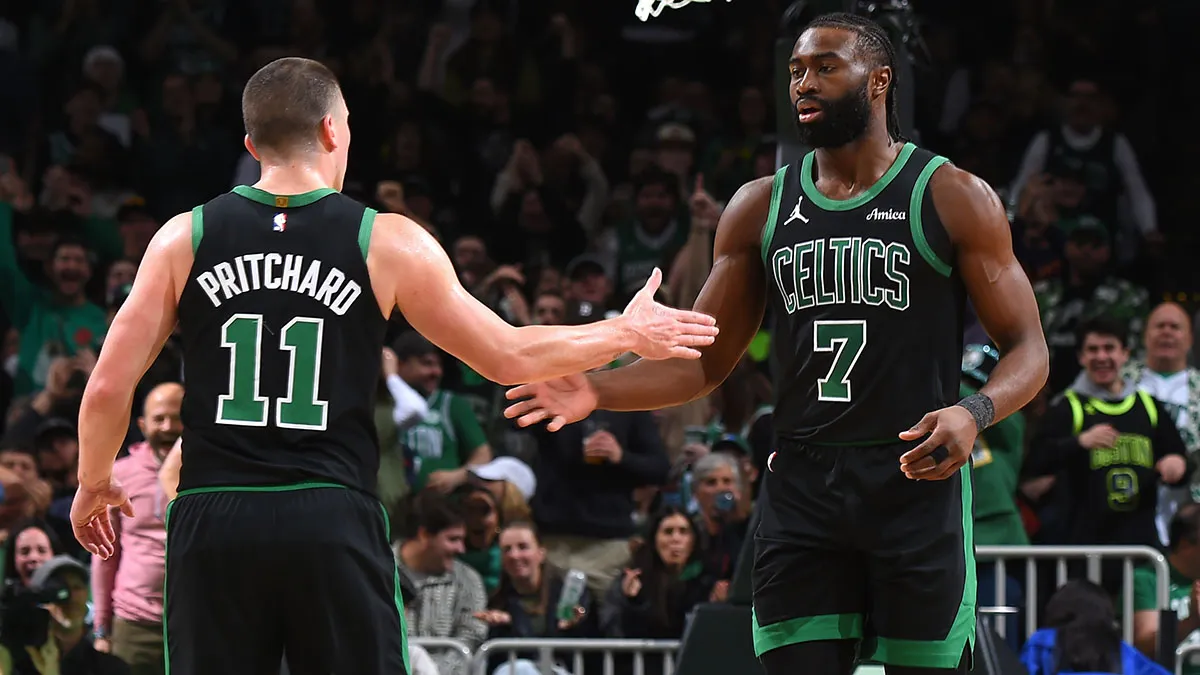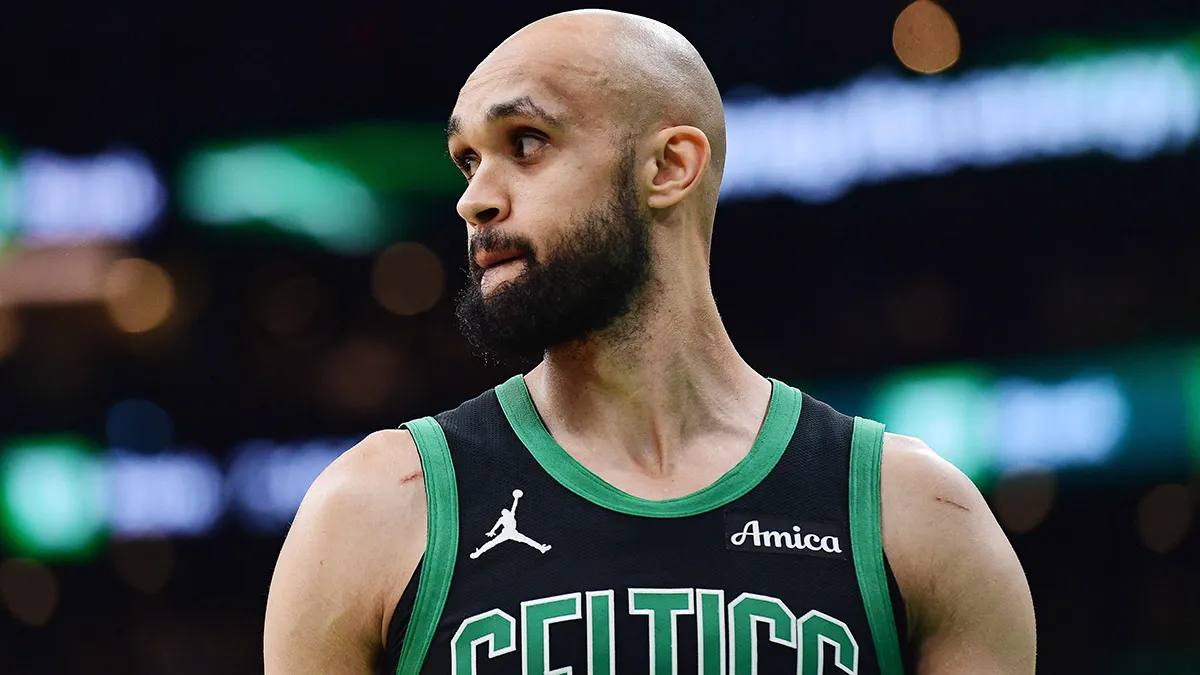Third in our series of key questions facing the Celtics this season. We'll ask one per day heading into camp, which kicks off with Media Day Sept. 24.
BOSTON – The Celtics won a lot of people over with the way they went overcame adversity and still found success in the playoffs last season.
But the good vibes they’re getting ahead of this upcoming season have more to do with who didn’t play in their run towards the Eastern Conference finals.
Boston spent all but the first five minutes of the season without Gordon Hayward, who is on track to be ready to start training camp next month.
- MORE CELTICS QUESTIONS - How will Smart's big-money deal impact his play?
And their leading scorer, Kyrie Irving, was out for the duration of the playoffs after an infection was detected in his surgically repaired left knee.
Both come into camp looking to bounce back and will certainly play a pivotal role in the success of the team this season.
And while the health of each is vital to Boston’s success, it is the health of Hayward – even more than Irving – that will be worth paying close attention to this season.
- MORE C's QUESTIONS - Who will emerge as the leaders of this team?
Here are five reasons why the health of Hayward is so important for the Celtics to have the kind of season that they expect - a trip to the NBA Finals:
Boston Celtics
Find the latest Boston Celtics news, highlights, analysis and more with NBC Sports Boston.
X-FACTOR
Despite having been in the NBA for eight seasons, there is an element of mystery surrounding what to expect from Hayward. Just like it’ll likely take some time for Hayward to get into the kind of groove he’s wanting, it’ll take opponents some time to figure out exactly how to deal with him as well. And that will most likely work in Boston’s favor. Teams know what he can do skill-wise but having been off for a year will likely bring about some changes to his game. Being away has allowed him to be more of a thinker when he returns to action. Combine that with his athleticism at getting to the rim and scoring from a variety of points on the floor...It adds up to a player who has the tools to make an impact. How he goes about it will keep team guessing for a while – and that’s a good thing for Hayward and the Celtics.
VERSATILITY
The Celtics played what’s often described as position-less basketball last season, fielding a lineup with the interchangeability to defend, dribble, pass and rebound from all spots on the floor. Hayward’s 6-foot-8 frame, athleticism and skills make him an ideal fit for this style of play. His size and length allow him to make switches defensively and not have a significant adverse impact on the team’s overall coverage plans. Combine that with an offensive game that includes beating players off the dribble, finishing at the rim and at times playing above the rim, it all adds up to another big-time difference-maker coach Brad Stevens can employ on a nightly basis.
UNDERRATED DEFENDER
A lot of attention is paid to what Hayward has done offensively, and how that part of his game has blossomed from one year to the next. But often overlooked in Hayward’s evolution is his defense. Prior to arriving in Boston, Hayward was coming off his best season defensively in Utah with a defensive rating of 102.4. Consider this: The Celtics had the league’s top defense this past season and their defensive rating was 101.5. In addition, Hayward’s added strength paid off in him showing signs of being a better wing rebounder on the defensive end of the floor. In the 2016-2017 season, Hayward had a career-best defensive rebounding percentage.
CHIP ON THE SHOULDER
Having missed all but the first five minutes of last season, there’s little doubt that Hayward will come into the season looking to prove he’s as good or even better than the player we saw in Utah. All NBA players have a certain edge about them; some sharper than others. Hayward is no different in that respect. But what sets him apart coming into this season are the expectations he’ll have for himself that have consistently been higher than that of others. Because of that, look for Hayward to play with a noticeable edge to his game all season.
FOURTH-QUARTER THREAT
In his last full season, Hayward averaged 5.7 points in the fourth quarter. Even more impressive was he did it while shooting 48.8 percent from the field. To put that in perspective, the only one player (Zach Randolph) had a higher field-goal percentage in the fourth quarter to appear in as many games as Hayward and take as many shots from the field. Adding another efficient scorer in the fourth will make things a lot easier for Irving and the rest of Boston’s late-game scorers.







